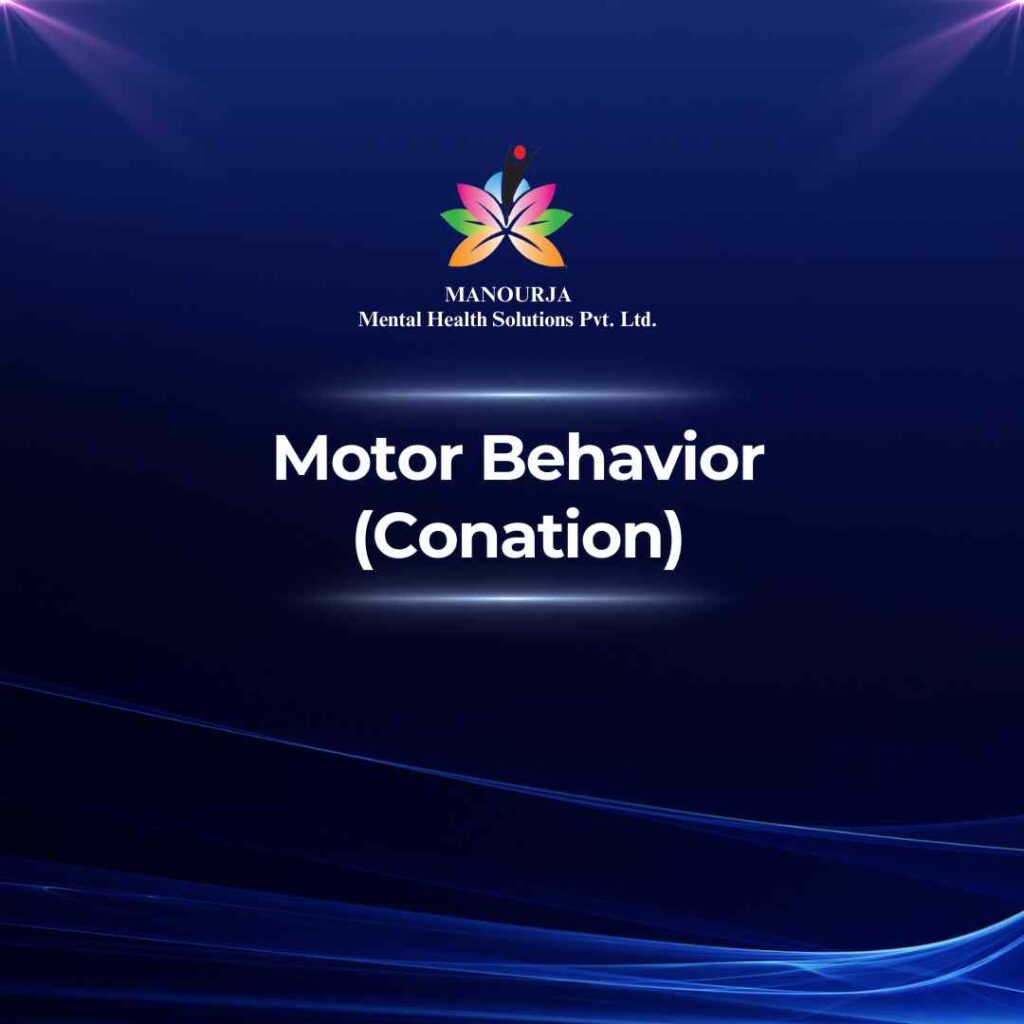Motor Behavior (Conation)

Motor behavior, also referred to as conation in psychological terms, encompasses the physical actions and movements that individuals engage in. It relates to the volitional aspect of behavior, involving the initiation and execution of purposeful actions, often influenced by motivation, intention, and goal-directed behavior.
“Motor Behavior (Conation)” as a Sign and Symptom of Mental Illness
Motor behavior or conation can manifest in various ways as signs and symptoms of mental illness:
- Agitation: Restlessness, pacing, or repetitive movements that indicate inner tension or anxiety, commonly seen in disorders like generalized anxiety disorder or acute stress reactions.
- Psychomotor Retardation: Slowed movement, reduced motor activity, and overall lethargy, often observed in severe depression or melancholic features of mood disorders.
- Motor Impulsivity: Rapid, unplanned movements or actions without consideration of consequences, characteristic of impulse control disorders or conditions like attention-deficit/hyperactivity disorder (ADHD).
- Catatonia: Extreme disturbances in motor behavior, ranging from complete immobility (catatonic stupor) to excessive and purposeless movement (catatonic excitement), which can occur in schizophrenia or other psychotic disorders.
- Tics or Stereotypies: Repetitive, involuntary movements or vocalizations, such as seen in Tourette syndrome or other tic disorders.
Mental Illnesses Where Motor Behavior (Conation) Is Commonly Observed
- Schizophrenia: Catatonic symptoms, including motor abnormalities such as stupor or agitation, are frequently associated with this disorder.
- Major Depressive Disorder: Psychomotor retardation or agitation can be prominent features, affecting motor behavior due to the underlying depressive episode.
- Bipolar Disorder: During manic episodes, individuals may exhibit increased energy levels and heightened motor activity, while depressive episodes can involve psychomotor slowing.
- Anxiety Disorders: Motor restlessness and agitation are common symptoms, particularly in generalized anxiety disorder or acute stress reactions.
- Obsessive-Compulsive Disorder (OCD): Ritualistic or repetitive behaviors (compulsions) involve specific motor actions driven by obsessive thoughts.
- Autism Spectrum Disorders: Stereotyped or repetitive movements (stereotypies) may be present as part of the behavioral repertoire in individuals with autism.
Understanding motor behavior as a manifestation of mental illness is crucial for accurate diagnosis and treatment planning. Treatment may involve a combination of medication, psychotherapy, and behavioral interventions aimed at addressing these symptoms and improving overall functioning.
At MANOURJA, we believe in the transformative power of counseling. Our experienced therapists offer a safe and supportive space where you can explore your thoughts, emotions, and challenges. Through personalized counselling sessions, we’ll work together to develop coping strategies, build resilience, and achieve lasting positive change. Discover the path to a healthier, happier you with MANOURJA counselling services.
MANOURJA Rehabilitation Services
At MANOURJA, we’re dedicated to helping you in rebuild your life, after difficult times. Our rehabilitation services focus on understanding what you need to move forward, whether you’re recovering from addiction, trauma, or any psychological – social challenges. We create personalized plans, that are all about helping you, regain your strength and find hope again. With a caring team by your side, you’ll have the support to make real progress and take steps toward a brighter, healthier future.
